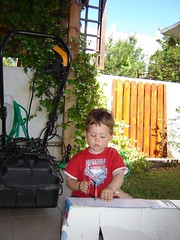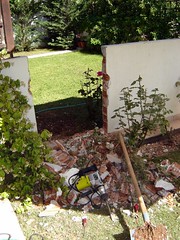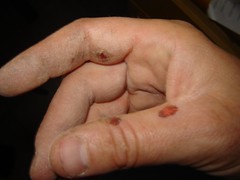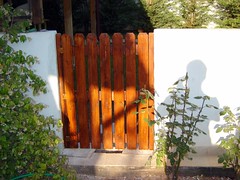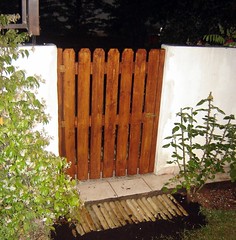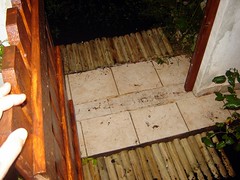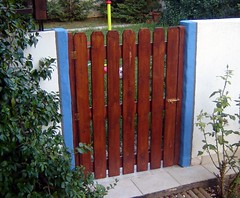We went to a quiet village, on a bay, sheltered by mountains in the back, and a long, rocky ridge of peninsula in the front. It gets windy there -- sometimes, turning a corner, you get an unexpected faceful of sand -- but the sea is always calm. It’s a good place for swimming.

And for windmills.

We drove up the mountain past countless old abandoned windmills, one or more on every peak. We parked near one, and trudged around it, me with a buka on my hip, trying to keep my footing in my loopy sandals on all the loose rock. There were lovely stone walls all around us, chest high, striping the slopes; something had to be done with all that rock, to cultivate the land. Walls were a good enough idea, windmills even better. Suddenly, out of nowhere, an old woman appeared. She was working on a bag of something. I struck up a conversation, starting with the wind. Her hat had a helpful strap under her chin. The buka’s did not.
She offered us some eggs. It was so windy up there, I hadn’t smelled the henhouse, or heard the sounds of any animals. I could barely hear her. The eggs she produced were huge and fresh -- and filthy. I asked her for a plastic bag. I don’t have a bag, she said, but I can wash them. So she dunked them in a bucket of water and handed them back, still filthy, still huge, still fresh. I wonder if she lived there, if she had running water at all.
Is that your only child? she asked. Yes, I said, my one and only. It’s a point of pride for me. That’s okay, she said, apparently not as satisfied with the buka as I am, you’ll have another.



